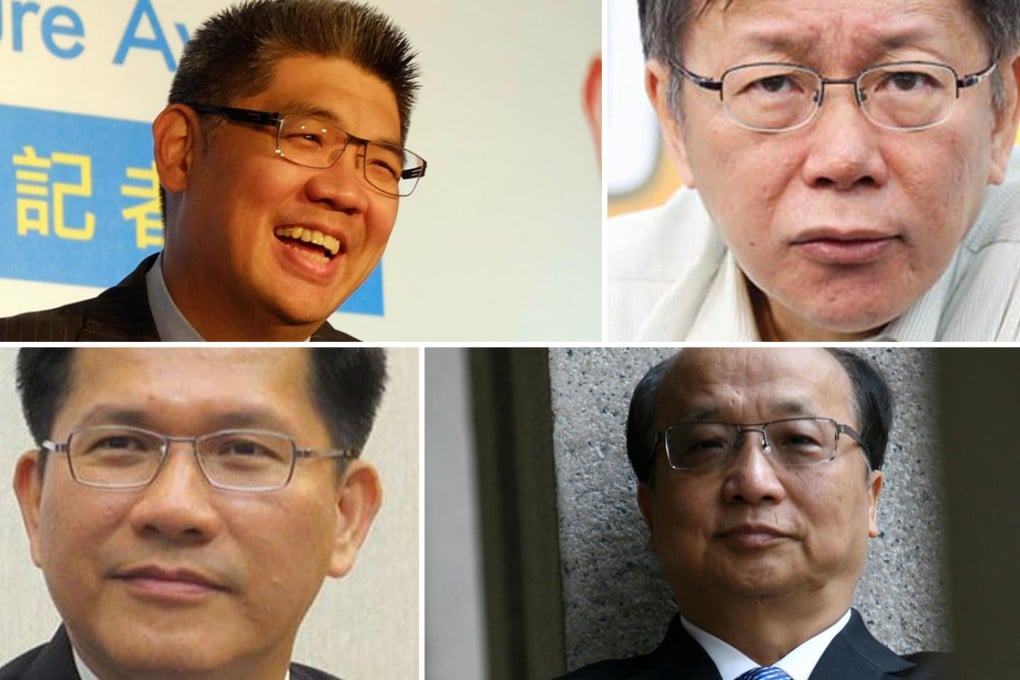Taiwan mayoral challengers take fight for votes to KMT strongholds
Ruling party confronts tough mayoral contests in Taipei and Taichung in local elections seen as a warm-up to the presidential poll in 2016

The Kuomintang is fighting a tough campaign for local elections in Taiwan next month in a vote seen as the prelude to the 2016 presidential poll.
The so-called nine-in-one November 29 elections will see a record 11,130 posts filled across nine tiers of local government, with contests for positions ranging from village wardens to city and special municipality mayors.
The vote is Taiwan's biggest ever poll and the elections for the mayors of six special municipalities are seen as the most important and most fiercely fought of all the local races.
Various opinion polls show the KMT trailing its main opponent - the opposition Democratic Progressive Party - in the races, with the possibility that it may lose its long control of Taipei and Taichung cities, key constituencies in the 2016 presidential election.
Of the six special municipalities, the KMT holds Taipei, New Taipei and Taoyuan in the north and Taichung in central Taiwan, while the DPP has two southern cities - Tainan and Kaohsiung.
Growing dissatisfaction over the perceived poor performance of President Ma Ying-jeou's administration was the main reason for the KMT's uphill battle, observers said.